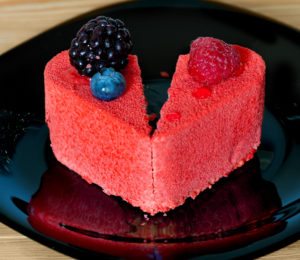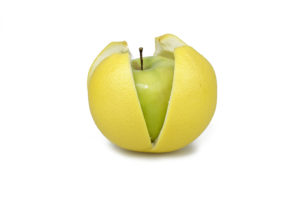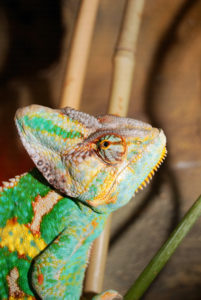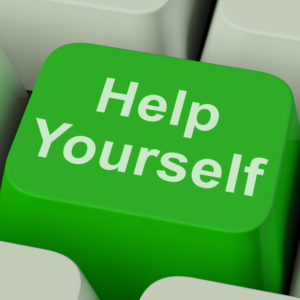Quick links, bringing you great articles on writing from all over the web.
 Hybrid publishing is an emerging area that occupies the middle ground between traditional and self-publishing and therefore includes many different publishing models— basically anything that is not self-publishing or traditional publishing. “Hybrid publishing” is not a term all publishers or authors in this space use; other terms that describe this type of publishing include “author-assisted publishing,” “independent publishing,” “partnership publishing,” “copublishing,” and “entrepreneurial publishing.” But right now, because it’s a catchall, “hybrid publishing” is the umbrella term I’ll use throughout this book to refer to this middle ground.
Hybrid publishing is an emerging area that occupies the middle ground between traditional and self-publishing and therefore includes many different publishing models— basically anything that is not self-publishing or traditional publishing. “Hybrid publishing” is not a term all publishers or authors in this space use; other terms that describe this type of publishing include “author-assisted publishing,” “independent publishing,” “partnership publishing,” “copublishing,” and “entrepreneurial publishing.” But right now, because it’s a catchall, “hybrid publishing” is the umbrella term I’ll use throughout this book to refer to this middle ground.
This guest post is Brooke Warner. Warner is publisher of She Writes Press, president of Warner Coaching Inc., and author of Green-Light Your Book, What’s Your Book?, and How to Sell Your Memoir, and the co-author of Breaking Ground on Your Memoir. Brooke’s expertise is in traditional and new publishing, and she is an equal advocate for publishing with a traditional house and self-publishing. She sits on the board of the Independent Book Publishers Association (IBPA), the Bay Area Book Festival, and the National Association of Memoir Writers (NAMW). She blogs actively on Huffington Post Books and SheWrites.com. She lives and works in Berkeley, California.
The hybrid publishing space is somewhat controversial, in part because it’s new and in part because there’s no universal agreement about what it is. Because hybrid models almost always involve the author paying for some or all services (and always in return for higher royalty rates), some assert that hybrid publishing is the same as vanity publishing. For people who like to think in black-and-white terms, the hybrid publishing space upends their sense of order. Without hybrid, there are’ just traditional publishing and self-publishing. Black and white. You get paid to publish or you pay to get published. The hybrid publishing space is not for black-and-white thinkers. There are a number of models, and in my experience what sets them apart from vanity presses is that they’re run like publishing companies. Many of them have a submissions process, control their own cover design and editorial process, and have publishers calling the shots and curating the lists. There are also traditional publishers that are cutting hybrid deals, in which authors pay for some services in exchange for higher royalties.
Read the full post on The Writer’s Dig
~ * ~
If you liked this article, please share. If you have suggestions for further articles, articles you would like to submit, or just general comments, please contact me at paula@publetariat.com or leave a message below.
 If you’re just getting started in self-publishing, there are some things that you need to know upfront in order to save yourself time, money and heartache along the way.
If you’re just getting started in self-publishing, there are some things that you need to know upfront in order to save yourself time, money and heartache along the way.
 Julie here! Today, I have Falguni Kothari as my guest on the blog. Falguni is a successful “hybrid author,” with both traditional and self-publishing experience. Her new book, MY LAST LOVE STORY (Harlequin/Graydon House), comes out tomorrow, January 23, 2018. This is Part One of a two part post, so be sure to come back tomorrow for Part Two. Take it away, Falguni!
Julie here! Today, I have Falguni Kothari as my guest on the blog. Falguni is a successful “hybrid author,” with both traditional and self-publishing experience. Her new book, MY LAST LOVE STORY (Harlequin/Graydon House), comes out tomorrow, January 23, 2018. This is Part One of a two part post, so be sure to come back tomorrow for Part Two. Take it away, Falguni! Today I’m talking with Australian author John Birmingham about his journey from the dizzying heights of the traditional publishing scene, to deciding to go indie and hybrid and his insights into how the publishing industry has changed. It’s an honest and really fascinating interview.
Today I’m talking with Australian author John Birmingham about his journey from the dizzying heights of the traditional publishing scene, to deciding to go indie and hybrid and his insights into how the publishing industry has changed. It’s an honest and really fascinating interview. Hybrid publishing is an emerging area that occupies the middle ground between traditional and self-publishing and therefore includes many different publishing models— basically anything that is not self-publishing or traditional publishing. “Hybrid publishing” is not a term all publishers or authors in this space use; other terms that describe this type of publishing include “author-assisted publishing,” “independent publishing,” “partnership publishing,” “copublishing,” and “entrepreneurial publishing.” But right now, because it’s a catchall, “hybrid publishing” is the umbrella term I’ll use throughout this book to refer to this middle ground.
Hybrid publishing is an emerging area that occupies the middle ground between traditional and self-publishing and therefore includes many different publishing models— basically anything that is not self-publishing or traditional publishing. “Hybrid publishing” is not a term all publishers or authors in this space use; other terms that describe this type of publishing include “author-assisted publishing,” “independent publishing,” “partnership publishing,” “copublishing,” and “entrepreneurial publishing.” But right now, because it’s a catchall, “hybrid publishing” is the umbrella term I’ll use throughout this book to refer to this middle ground.
 March 22, 2016
March 22, 2016